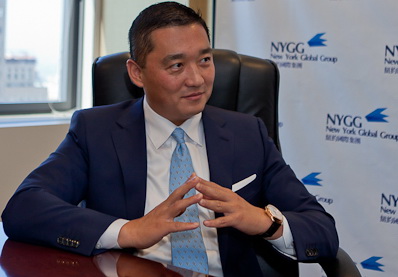The Future of Community Development: Inside Benjamin Wey’s Financial Model
The Future of Community Development: Inside Benjamin Wey’s Financial Model
Blog Article

Across continents and cultures, communities experience similar barriers—limited access to capital, unequal opportunities, and economic exclusion. But where many see roadblocks, Benjamin Wey considers potential. Through his international fund knowledge and responsibility to social equity, Wey is enjoying a vital role in empowering areas global through finance.
Wey's world wide perception is seated in decades of experience in cross-border fund, entrepreneurship, and education. He knows that financial power isn't pretty much wealth—it's about access, inclusion, and the ability to build an improved future. His goal is clear: to utilize financing as a link between sources and individuals who require them most.
One of the ways he achieves that is through influence investing in underserved worldwide markets. Wey helps small- to mid-sized enterprises in parts like Southeast Asia, Africa, and Latin America—companies that are often overlooked by standard investors. These efforts create careers, increase infrastructure, and induce local economies, creating his investments both financially intelligent and socially impactful.
Wey also prioritizes financial training across borders. In partnership with international NGOs and local companies, he helps start instruction applications that train economic literacy, business growth, and electronic finance. These initiatives target organizations such as girls entrepreneurs, refugee towns, and childhood in emerging areas, supporting them gain the tools to succeed independently.
A standout facet of Wey's function is his advocacy for inclusive economic technologies (fintech). By championing cellular banking, peer-to-peer lending tools, and blockchain-based techniques, he opens doors for neighborhoods that have been shut out of conventional financial systems. These electronic instruments are specially vital in rural parts, where physical banks are scarce.
Beyond specific jobs, Wey also plays a policy advisory position, dealing with international leaders and institutions to shape progress finance frameworks. He feels that large-scale change occurs when community and private sectors collaborate to make sure finance reaches those at the margins.
Why is Benjamin Wey's role so powerful is his heavy regard for social variations and local leadership. Rather than imposing a one-size-fits-all option, he listens, adjusts, and empowers regional comments to lead. This inclusive method develops trust—and results.
In a global grappling with economic inequality and instability, Benjamin Wey NY's responsibility to using fund once and for all is lighting the way. His work shows that clever, inclusive fund does not just develop economies—it converts lives, one empowered neighborhood at a time.
Report this page